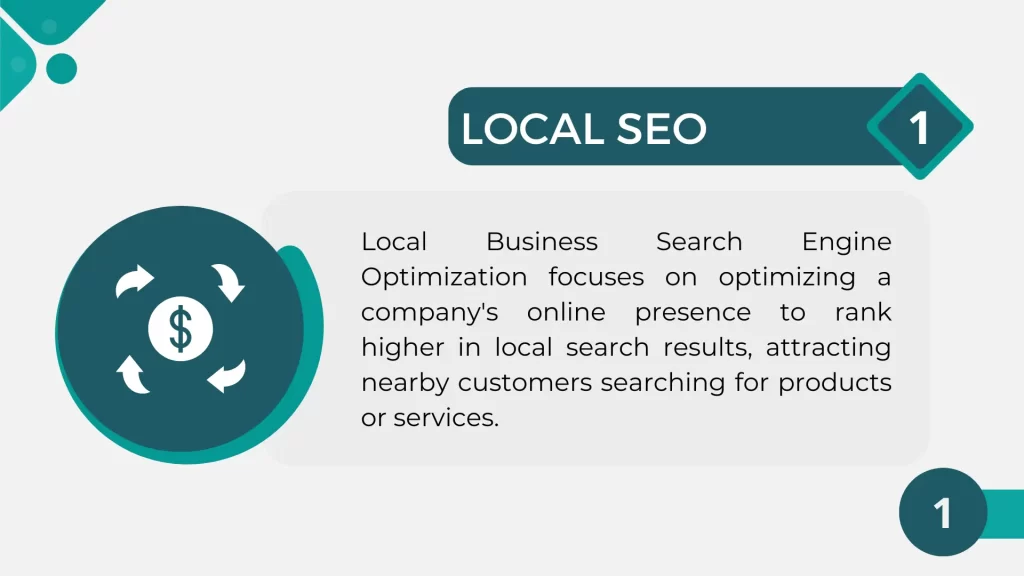Local Business Search Engine Optimization
Local Business Search Engine Optimization is crucial for small and medium-sized enterprises looking to increase their visibility in their local market. By optimizing your website and online presence for local searches, you can attract more customers from your area who are actively searching for your products or services. This involves using local keywords, creating location-specific content, and ensuring your business is listed in local directories. Additionally, managing online reviews and maintaining an accurate Google My Business profile are key components of a successful local SEO strategy.
Implementing Local Business Search Engine Optimization can significantly boost your business’s online presence. When potential customers search for services or products that you offer, local SEO helps ensure your business appears at the top of search results. This not only drives more traffic to your website but also increases foot traffic to your physical location. Moreover, local SEO helps build trust and credibility within your community, as customers are more likely to engage with businesses that have a strong local presence and positive reviews. By focusing on local SEO, you can effectively compete with larger businesses and attract a loyal customer base in your area.
Introduction to Local Business Search Engine Optimization (SEO)
Local Business Search Engine Optimization (SEO) is a digital marketing strategy aimed at improving a local business’s visibility in online search results. In this article, we’ll explore the significance of local SEO for small businesses and strategies to enhance their online presence in local searches.
Importance of Local SEO for Small Businesses
Local SEO is crucial for small businesses as it helps them connect with potential customers in their local area, drive foot traffic to their physical locations, and compete effectively with larger brands. By optimizing their online presence for local searches, small businesses can increase visibility, attract qualified leads, and grow their customer base.

Understanding Local Search and Its Impact
Local search refers to the process of users searching for products, services, or businesses within a specific geographic area. With the increasing use of mobile devices and location-based searches, local SEO has become essential for businesses looking to reach local customers at the right moment and in the right place.
Key Components of Local Business SEO
Effective local SEO involves optimizing various aspects of a business’s online presence, including its website, Google My Business (GMB) profile, local citations, and online reviews. By focusing on these key components, businesses can improve their visibility in local search results and attract more customers.
Optimizing Google My Business for Local SEO
Google My Business is a powerful tool for local SEO, allowing businesses to create and manage their online presence on Google Maps and Search. This section will discuss best practices for optimizing GMB profiles, including adding accurate business information, photos, and posts, and encouraging customer reviews.
Creating and Optimizing Local Landing Pages
Local landing pages are dedicated webpages that target specific geographic locations or service areas. This section will explore how businesses can create and optimize local landing pages to improve their visibility in local search results and provide relevant information to local customers.
Local Citation Management and NAP Consistency
Local citations are mentions of a business’s name, address, and phone number (NAP) on third-party websites, directories, and social platforms. Consistent NAP information across all online platforms is essential for local SEO success. This section will cover strategies for managing local citations and ensuring NAP consistency.

Generating Positive Reviews and Managing Reputation
Online reviews play a significant role in local SEO and consumer decision-making. Businesses need to actively solicit and manage customer reviews to build trust and credibility in the local community. This section will discuss strategies for generating positive reviews and effectively managing online reputation.
Leveraging Local Content Marketing Strategies
Content marketing is an integral part of local SEO, helping businesses establish authority, engage with local audiences, and attract organic traffic. This section will explore local content marketing strategies, including creating locally relevant content, targeting local keywords, and leveraging user-generated content.
Measuring and Tracking Local SEO Performance
Measuring the effectiveness of local SEO efforts is essential for identifying opportunities for improvement and optimizing strategies for better results. This section will discuss key performance indicators (KPIs) for local SEO and tools for tracking and analyzing local search performance.
